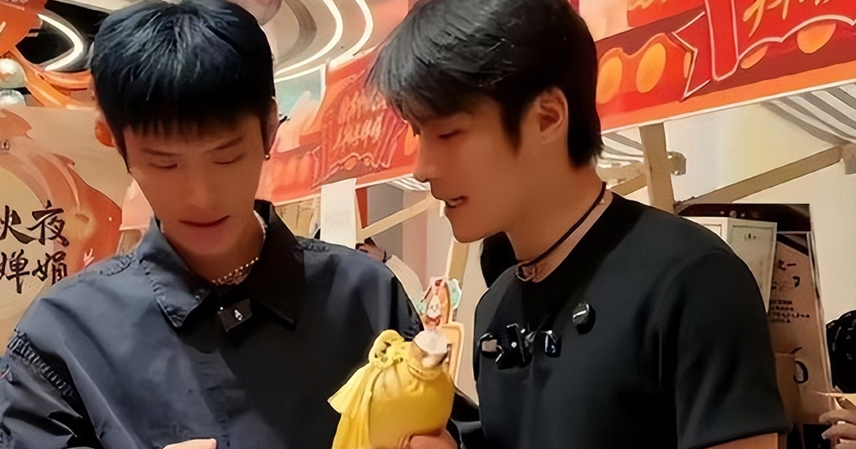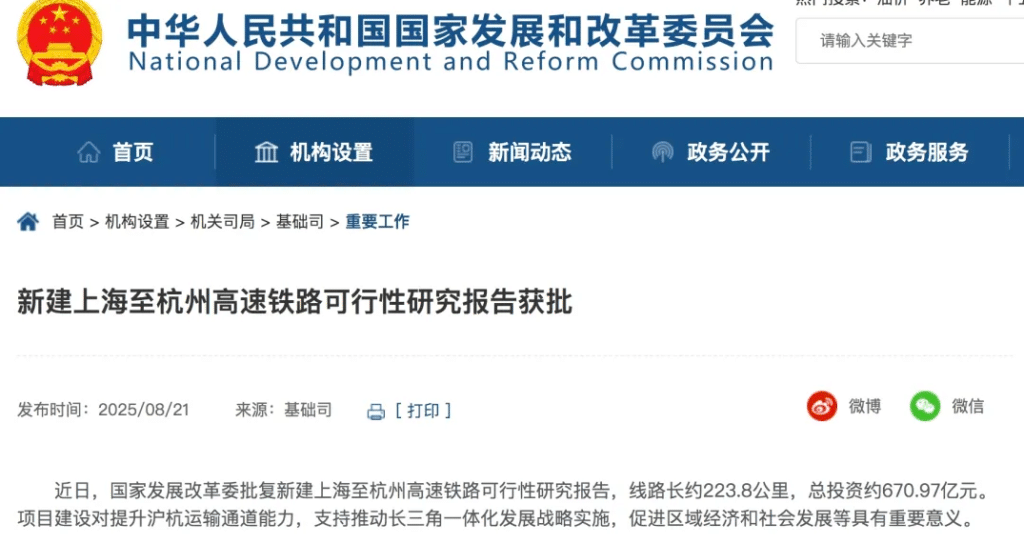In recent years, live-streaming e-commerce has become a “money printing machine.” As long as influencers have some fame, they can easily sell millions or even billions of products just by speaking in a live broadcast. Fans, eagerly shouting “family,” rush to place orders, thinking that buying from influencers is reliable and a chance to get a bargain. But who would have thought that the reality is entirely different?
Many of these influencers, who claim to be “providing benefits for the family,” are selling products that are not even good, and some are even counterfeit or low-quality goods, taking advantage of the public’s wallets and health. Influencers like Xinba, Northeast Rain Sister, and Xiao Yang Ge, who were once top figures in live-streaming e-commerce, have all fallen from grace, and both CCTV and the State Council have criticized them.
So, what went wrong with these influencers? Why has the live-streaming industry been permanently altered after the government stepped in?

Xinba’s “Retirement Drama”: Real Injury or Fake Withdrawal?
When talking about the biggest figure in live-streaming e-commerce, Xinba surely takes the lead. He’s the top influencer in the field, with fans calling him “Xin Xuan No. 1.”
In 2019, he even held a grand wedding concert at the Beijing Olympic Sports Center, inviting celebrities like Jackie Chan, making it feel like a top-level concert. On Singles’ Day that same year, he sold 2.1 billion yuan in just one live stream, raising the bar for live-streaming e-commerce sales.
However, behind his glory, there has been constant controversy. What made Xinba famous in recent years is not his sales performance but his “five withdrawals from the internet, and five comebacks.” Netizens joked, “He retires as reliably as Double Eleven arrives, and his comebacks are more punctual than an alarm clock.”
In 2020, he retired for the first time, claiming that he was disheartened after a fight with a fellow streamer. He even cried about being hurt by the internet. Yet, two months later, he returned for 618, saying it was “for the team,” and broke records again with a 1.25 billion yuan sales live stream.
In 2021, he was fined 62 million yuan due to the “sugar water bird’s nest incident,” and he tearfully announced his “retirement,” but not long after, he made a comeback and set new sales records.
The most ironic part is that every time he “retires,” he sheds tears, acting as if he has been wronged, but once a major promotional event arrives, he always “returns” with even more fanfare.
By 2024, after repeatedly criticizing platform restrictions, his account was permanently banned, and his team announced his “permanent retirement.” However, as soon as his account was unbanned, he returned with a high-profile live broadcast, making 6.4 billion yuan in one session—higher than the total sales of some large supermarkets in six months.
By August 2025, he once again announced his retirement, claiming that although he was only 30 years old, his lungs felt like those of a 95-year-old due to the pressure of live streaming. He said he had to take adrenaline shots to continue. Fans expressed concern, but netizens laughed, “Is this not the 10,086th time he’s retiring?”

However, this time seems different. Xinba’s self-created sanitary pad brand, “Cotton Secret,” was exposed for having significant issues: multiple batches tested positive for thiourea, with one batch reaching 16,000μg/g. Long-term use could lead to gynecological inflammation, thyroid problems, and even serious effects on pregnant women. Given that sanitary pads are among the most sensitive products for women, this issue could have even worse consequences than the bird’s nest incident.
Many speculate that Xinba’s hasty retirement is not due to health issues, but rather a way to escape regulatory scrutiny. He has been repeatedly criticized in the past, and with frequent issues in his brands, if this incident is proven, he might never be able to make a comeback.
Is his health really a concern, or is it just a way to escape the situation? Only the regulatory bodies can provide the answer.
Northeast Rain Sister: A Crumbling “Farmer’s Sister” Persona
Unlike Xinba, Northeast Rain Sister rose to fame with her “farm girl” persona. In 2022, she began posting videos about rural life on short video platforms.
In the videos, she confidently ate meat and drank alcohol, cooked while carrying half a pig, presenting herself as a down-to-earth, real rural woman. She quickly gained more than 20 million followers, and many thought she was the most genuine, honest, and reliable northeastern sister.
As her fan base grew, she started selling goods, most of them so-called northeastern specialties like sweet potato vermicelli. She promised “genuine goods or we’ll pay you ten times the price,” and fans trusted her, which led to a steady stream of orders.
However, things took a turn when an anti-counterfeit blogger sent one of her “genuine sweet potato vermicelli” products for testing. After three tests, it was revealed that it was actually cassava flour, with no trace of sweet potatoes at all. If cassava is not processed properly, it can be toxic, and this was a case of using cheap ingredients to pass off as expensive food.
At first, Northeast Rain Sister denied the claims and even assaulted the anti-counterfeit blogger who came to speak with her, deleting evidence from his phone. However, to her surprise, everything was recorded by the blogger’s car camera, and once the footage was exposed online, public outrage erupted.

The investigation that followed was even more shocking. The “northeastern little yard” she filmed her videos in wasn’t even her own house—it was a rented filming base with an annual rent of only 20,000 yuan. The “family members” and “neighbors” in her videos were often hired actors. Her seemingly humble life was all a carefully crafted persona.
In the end, market regulatory authorities intervened, fining the manufacturer 6.72 million yuan for false labeling. Northeast Rain Sister herself was fined 1.65 million yuan for false advertising and was required to refund consumers three times the amount, which exceeded 3 million yuan. Her account was quickly banned, and she lost over 2 million followers. The rented yard was left empty.
Despite this, she didn’t give up. In June of this year, she organized a “charity water station,” claiming to give free bottled water to college entrance exam students. However, it was exposed that the water was sponsored by manufacturers, and she was just riding on the hype.
Later, her disciples renamed their brand “Rain Family Army” and tried to continue live-streaming sales, but faced strong resistance from netizens. It wasn’t until the State Council’s press conference in August 2025 that she was officially shut down for good.
A once-popular “real character” turned into a symbol of fake goods, fake personas, and fake charity. It’s a bitter story for many.
Xiao Yang Ge and “Three Sheep”: From Top MCN to Total Collapse
In the live-streaming e-commerce industry, Xiao Yang Ge’s “Three Sheep” is a legend. Initially, Xiao Yang Ge was a comedic blogger, gaining millions of followers with humorous videos.
Later, he transformed into a live-streaming seller, incorporating his comedic style into the broadcasts, making shopping more enjoyable for viewers. This “entertainment + sales” approach helped him quickly become a top influencer.
As his fame grew, he founded the “Three Sheep” company and signed 28 influencers. By 2023, the company’s annual revenue exceeded 30 billion yuan, with taxes totaling 450 million yuan. At that time, Three Sheep was a star enterprise in Hefei and a representative of China’s live-streaming e-commerce industry.
But after their peak, problems arose. In October 2023, anti-counterfeit expert Wang Hai exposed that the “Hetian jade necklace” they sold was fake, with testing showing it was carbonate jade and the certificates were fake. Soon after, their promotion of “Australian original cut beef rolls” also failed, as it was found to be synthetic meat, defrauding over 40,000 consumers.
The worst part came in 2024 when CCTV’s “315” report exposed that the “meicai braised pork” they sold used unqualified parts, like lymphatic meat.
During the Mid-Autumn Festival, they invited actor Zeng Zhiwei to promote “Hong Kong Meicheng mooncakes,” advertising them as a Hong Kong brand created by Michelin chefs. However, it turned out to be low-end products from a small factory in Guangdong, with over 50 million yuan in sales in their live stream.
A series of fake product scandals led to strong regulatory actions. Hefei Market Supervision Bureau issued a fine of 689 million yuan and demanded the company stop operating and rectify its practices, also requiring them to refund consumers 27.77 million yuan.
Meanwhile, the internal gambling contract of Three Sheep was also exposed: signed influencers were required to live-stream for 300 hours a month, nearly non-stop. This revealed the company’s true nature—“exploiting influencers + deceiving consumers.”
After the fines, Three Sheep suspended broadcasts for half a year and lost nearly 10 million followers. In 2025, they tried to return wearing masks, but were quickly shut down by angry netizens. Rumors circulated that they planned to sell their account for nine figures, but no one dared to take over.
In the August 22, 2025, State Council press conference, Three Sheep and Northeast Rain Sister were named and shamed. Their live-streaming careers were officially ended.
This serves as a warning to the entire industry: No matter how big the MCN or how popular the influencer, if they break the law, they will face consequences.

Conclusion
From Xinba to Northeast Rain Sister, and finally to Xiao Yang Ge’s “Three Sheep,” once top influencers all ended up facing the collapse of their personas and punishment for their wrongdoings. They once made money easily by leveraging traffic and personas, calling their fans “family,” while behind the scenes, they were selling counterfeit goods and making dirty money. Now, with CCTV pointing fingers and the State Council taking action, the industry is facing the strongest regulation ever.
In the future, live-streaming sales will no longer be “traffic-driven” but “quality-driven.” Influencers must maintain integrity, and manufacturers must take responsibility for their products. Consumers can no longer blindly trust the so-called “family benefits” but should look closely at qualifications and reviews. Only when the industry returns to authenticity can it grow healthily and sustainably.
The question remains: After this cleanup, will new “Xinbas” and “Rain Sisters” rise again?



